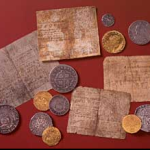
The following is the original text of the Currency Act of 1751.
WHEREAS the Act of Parliament made in the sixth Year of her late Majesty Queen Anne, intituled An Act for ascertaining the Rate of foreign Coins in her Majesty’s Plantations in America, hath been intirely frustrated in his Majesty’s said Colonies of Rhode Island and Providence Plantations, Connecticut, the Massachusets Bay, and New Hampshire in America, by their creating and issuing, from Time to Time, great Quantities of Paper Bills of Credit, by virtue of Acts of Assembly, Orders, …
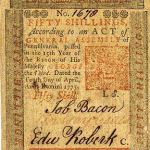
The following is the original text of the Currency Act of 1764.
WHEREAS great quantities of paper bills of credit have been created and issued in his Majesty’s colonies or plantations in America, by virtue of acts, orders, resolutions, or votes of assembly, making and declaring such bills of credit to be legal tender in payment of money: and whereas such bills of credit have greatly depreciated in their value, by means whereof debts have been discharged with a much less value than was contracted for, to the great discouragement and …
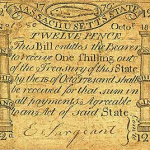
What was the Currency Act of 1751?
The Currency Act of 1751 prohibited the issue of new bills of credit by New England colonies: Rhode Island, Massachusetts Bay, New Hampshire and Connecticut. Parliament decided to enact the Currency Act of 1751 to control currency depreciation against silver and sterling and to ensure its value for payments of debt to British merchants. extended the policy to all British colonies in the Americas increasing more tension between Britain and America.
Why was the 1751 Currency Act passed?
Most of the hard currency and revenues in …
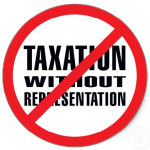
The Navigation Acts were trade rules that governed commerce between Britain and its colonies. The first of the Navigation Acts existed for almost two centuries and was repealed in 1849. The laws were designed to protect British economic interests in colonial trade and to protect its industry against the rapidly growing Dutch navigation trade.
The purpose of the Molasses Act was to protect British West Indies exports to the American colonies from the more fertile French and Spanish islands of Martinique and Santo Domingo. It was not designed to raise revenue …
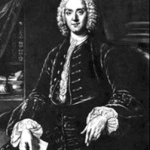
During the first eight years of King George III reign the British government had six ministries. British politics was in a state of chaos and political infighting between Whig groups disrupted colonial policy.
In the last years of King George II, Britain was unified under the leadership of William Pitt who had led Britain to war against the French in North America and India. The war had been costly and Britain was highly indebted however Pitt wanted to declare war on Spain before Spain attacked Britain. Not finding support among George …